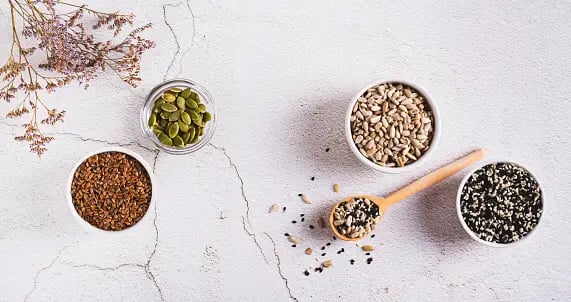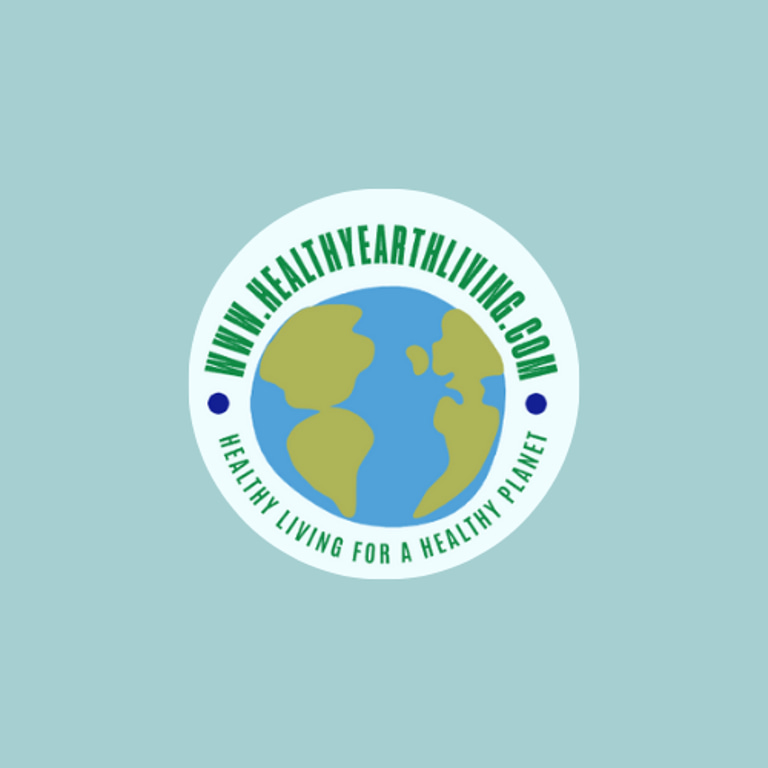5 Ways to Manage Menopause Symptoms, Naturally!
Janelle Salo RN
8/2/20249 min read


As women, our bodies start to wage hormonal warfare from as early as age 8 until as late as age 60. Starting with puberty, as our bodies begin to transition from child to adult, women undergo hormonal changes to prepare us for pregnancy with monthly menstrual cycles.
Female sex hormones, including estrogen and progesterone, play critical roles throughout various life stages. During puberty, these hormones drive the development of secondary sexual characteristics and initiate menstruation.
Another hormonal cycle begins during and after pregnancy as the body tries to restore itself to pre-pregnancy hormone levels. Menstruation and pregnancy regulate the menstrual cycle and support fetal development. But wait, there’s more!
Around age 45, our bodies undergo yet another hormonal change as we begin the pre-menopausal cycle to prepare us for the final restoration of where we began when we were kids. As women approach menopause, hormone levels decline, leading to the cessation of menstrual cycles and various menopausal symptoms.
Understanding Menopause
Menopause and its stages
Menopause is a natural biological process marking the end of a woman's menstrual cycles, typically occurring in three stages:
perimenopause
menopause
postmenopause. (1)
Common symptoms and their impact on daily life
Symptoms, such as:
hot flashes
mood swings
sleep disturbances
can significantly impact daily life by causing discomfort, emotional stress, and fatigue. (2)
Embracing Natural Remedies
Why choose natural remedies?
These remedies, such as herbal supplements and lifestyle changes, can provide holistic support, addressing not just physical symptoms but also emotional and mental well-being.
Additionally, natural remedies can enhance overall health and longevity, promoting a more balanced and sustainable approach to menopause management. (3)
Benefits over conventional treatments
Opting for natural remedies to manage menopause symptoms can offer a gentler approach that aligns with the body's natural processes, often resulting in fewer side effects compared to conventional treatments. (4)
Most Common Menopause Symptoms
Hot Flashes and Night Sweats
Menopause can cause sleep disturbances and discomfort due to hormonal fluctuations, particularly decreases in estrogen and progesterone.
These changes can lead to hot flashes, night sweats, and increased anxiety, all of which can disrupt sleep quality and overall comfort. As a result, many women experience fatigue, irritability, and decreased quality of life during this transitional period. (5)
Mood Swings and Emotional Health
Hormonal changes can also significantly impact emotions. These shifts can lead to mood swings, increased anxiety, and feelings of depression, as hormones play a critical role in regulating mood and emotional stability.
Consequently, many women experience emotional challenges during menopause, affecting their overall well-being and daily functioning. (6)
Vaginal Dryness and Discomfort
Menopause can impact intimacy due to hormonal changes that cause vaginal dryness, decreased libido, and discomfort during intercourse.
Lower estrogen levels can reduce natural lubrication and elasticity in the vaginal tissues, making intimate activities less pleasurable and more painful. These physical changes, along with emotional shifts, can strain intimate relationships and reduce overall sexual satisfaction. (7)


Other Notable Symptoms
Menopause often leads to:
weight gain
sleep disturbances
memory issues
Decreased estrogen levels can slow metabolism, contribute to insomnia or poor sleep quality, and affect cognitive functions, leading to difficulties with memory and concentration.
These symptoms can collectively impact daily life, causing physical discomfort and mental strain.


Diet and Nutrition
Incorporating Phytoestrogens
Soy, flaxseeds, and tofu offer numerous health benefits, particularly for women experiencing menopause. These foods are rich in phytoestrogens, plant-based compounds that mimic estrogen, helping to alleviate menopausal symptoms like hot flashes and hormonal imbalances.
Additionally, they provide essential nutrients and protein, supporting overall health and well-being. (8)
Anti-Inflammatory Foods
Omega-3 fatty acids, berries, and leafy greens are essential for maintaining overall health, especially during menopause. Omega-3s support heart health and reduce inflammation, while berries are rich in antioxidants that protect against cellular damage.
Leafy greens provide vital nutrients like calcium and vitamin K, promoting bone health and reducing the risk of osteoporosis. (9)
Hydration and Herbal Teas
Staying hydrated is critical for overall health, particularly during menopause, as it helps maintain body functions and alleviates symptoms like dry skin and fatigue.
Herbal teas such as chamomile and peppermint offer additional benefits: chamomile can promote relaxation and improve sleep quality, while peppermint aids digestion and reduces bloating. Incorporating these teas into your daily routine can enhance hydration and support well-being. (10)


Herbal Remedies and Supplements
Black Cohosh
Black cohosh is a popular herbal remedy known for its potential to alleviate hot flashes and night sweats during menopause. It is believed to work by interacting with neurotransmitters and estrogen receptors, helping to regulate the body's temperature control and hormonal balance.
Many women find that black cohosh can reduce the intensity and frequency of these symptoms, improving overall comfort and quality of life. (11)
Red Clover
Red clover contains phytoestrogens, plant compounds that mimic estrogen in the body. These compounds can help reduce hot flashes and night sweats during menopause.
By interacting with estrogen receptors, red clover may help balance hormone levels and lighten the frequency and severity of these symptoms. Many women use red clover as a natural remedy to support menopausal comfort and manage these common issues. (12)
Evening Primrose Oil
Evening primrose oil is valued for its high gamma-linolenic acid (GLA) content, which supports hormonal balance and skin health. GLA can help regulate hormonal fluctuations during menopause, potentially easing symptoms like mood swings and irritability.
Additionally, evening primrose oil improves skin hydration and elasticity, addresses dryness, and promotes a healthier complexion. (13)
Dong Quai and Ginseng
Dong Quai and ginseng have been used in traditional medicine for centuries to support overall health and balance. Dong Quai is often utilized for its potential to regulate menstrual cycles and reduce menopausal symptoms.
At the same time, ginseng is known for its adaptogenic properties that help combat fatigue and enhance vitality. In modern times, both herbs are valued for supporting energy levels, improving immune function, and promoting overall well-being. (14)


Lifestyle Changes
Regular Exercise
Regular exercise is important during menopause for managing symptoms and maintaining overall health.
Yoga can enhance flexibility and reduce stress.
Walking provides cardiovascular benefits and supports weight management.
Strength training helps maintain muscle mass and bone density.
Incorporating these exercises into your routine can improve mood, alleviate menopausal symptoms, and support long-term well-being. (15)
Stress Management Techniques
Stress management techniques like meditation, deep breathing, and mindfulness reduce stress and improve overall well-being.
Meditation helps calm the mind and enhance emotional resilience.
Deep breathing can lower cortisol levels and induce relaxation.


Mindfulness practices encourage staying present and managing stress responses more effectively.
Incorporating these techniques can help alleviate symptoms of anxiety and improve mental clarity, especially during stressful periods like menopause. (16)


















Sleep Hygiene
Sleep quality can be improved through several practical tips:
establishing a consistent sleep schedule
creating a relaxing bedtime routine
maintaining a comfortable sleep environment
reducing screen time before bed
managing stress through relaxation techniques
avoiding caffeine or heavy meals
Implementing these habits can help enhance sleep quality and overall well-being. (17)


Alternative Therapies
Acupuncture
Acupuncture may relieve menopause symptoms by stimulating specific points in the body to balance energy and regulate hormonal fluctuations.
It has been reported to help reduce hot flashes, night sweats, and mood swings by improving circulation and supporting the body's natural healing processes. Many women find acupuncture to be a complementary therapy that enhances overall comfort and well-being during menopause. (18)
Aromatherapy
Aromatherapy, which uses essential oils known for their calming and balancing properties, can provide relief from menopause symptoms.
Lavender oil is renowned for its ability to reduce anxiety, improve sleep quality, and ease mood swings.
Clary sage is often used to help balance hormones and alleviate hot flashes.
Incorporating these essential oils into your daily routine can support emotional well-being and comfort during menopause. (19)


Massage Therapy
Massage therapy offers significant relaxation and symptom relief benefits during menopause by reducing muscle tension, promoting circulation, and alleviating stress.
It can help ease discomfort from symptoms such as muscle aches and joint pain while enhancing overall relaxation and emotional well-being. Regular massage sessions can improve sleep quality and support a more balanced and comfortable menopausal experience. (20)


Natural Supplements
Calcium and Vitamin D
Calcium and vitamin D are essential for maintaining bone health during menopause, as decreased estrogen levels can increase the risk of osteoporosis and bone density loss.
Calcium supports bone strength and structure.
Vitamin D enhances calcium absorption and mineralization.
Ensuring adequate intake of these nutrients can help prevent bone-related issues and support overall skeletal health during this transitional period. (21)
Magnesium
Magnesium plays a critical role in regulating sleep and mood by supporting the function of neurotransmitters and promoting relaxation.
It helps to calm the nervous system, which can improve sleep quality and reduce symptoms of anxiety and depression. Adequate magnesium intake may improve overall mental well-being and more restful sleep. (22)
Vitamin E
Vitamin E can be beneficial for managing hot flashes and vaginal dryness during menopause due to its antioxidant properties and ability to support skin health.
Topical application of vitamin E oil may help alleviate vaginal dryness by moisturizing tissues, while oral supplements can help reduce the frequency and intensity of hot flashes. It improves overall skin hydration and elasticity and improves comfort during menopause. (23), (24)


My Journey
I started experiencing perimenopausal symptoms at the age of 47, starting with hot flashes and night sweats. Now, at age 55, still in the throws of menopause, I still have the same symptoms but much less during the day.
My GYN had started me on estradiol patches to help with the hot flashes, BUT it made my blood pressure too high, and with my family history of breast cancer, I decided I had to wean off of it. Now, I’m managing symptoms holistically.
My yoga practice has been a healthy distraction, producing mindfulness and helping me to alleviate the joint and muscle pains that have come with menopause.
I take Vitamin D supplements and eat a plant-based diet, which has helped with some inflammation. Peppermint oil has also been helpful with ongoing stomach issues and bloating. I have noticed some unusual skin dryness and breakouts and am still trying to work that out, but I plan to supplement with evening primrose oil and Vitamin E.
I think the most challenging thing for me has been the length of time it's taken me to get through menopause and postmenopause. It’s safe to say that I’ve never been more ready for something to end!


Considerations and Precautions
Consulting Healthcare Providers
It is crucial to consult healthcare providers about natural remedies to ensure their safety and efficacy, especially when integrating them with conventional treatments.
Doctors can provide personalized advice, assess potential interactions with other medications, and help tailor a comprehensive treatment plan that addresses individual health needs.
Open communication with a healthcare provider ensures a balanced approach to managing menopause symptoms and supports overall health and well-being.
Potential Side Effects
Being aware of potential side effects and interactions with medications is essential when using natural remedies for menopause.
Some herbal supplements and alternative treatments can cause adverse reactions or interfere with prescription medications, impacting their effectiveness or leading to unintended effects.
Consulting a healthcare provider and monitoring for adverse reactions can help ensure natural remedies' safe and effective use.


Bottom Line
Recap of Natural Remedies
Natural remedies for managing menopause symptoms include a variety of approaches, such as:
herbal supplements like black cohosh and red clover
dietary additions like soy, flaxseeds, and omega-3 fatty acids
lifestyle practices like regular exercise and stress management
Essential oils
acupuncture
massage therapy
Integrating these remedies and consulting healthcare providers can provide a comprehensive and personalized approach to enhancing comfort and well-being during menopause.
Encouragement and Support
Exploring natural remedies for menopause can provide valuable support and relief, offering a holistic approach to managing symptoms and enhancing overall well-being.
I encourage my readers to consider these options as part of a comprehensive health plan and consult healthcare providers to find the most effective and personalized solutions.
Embracing natural approaches can empower you to take control of your health and navigate menopause with greater ease and comfort.
© 2025 Salo Content Writing LLC, all rights reserved
Join the Movement for a Healthier Planet! 🌿
Subscribe now and get your FREE Sustainable Living Checklist! Plus, enjoy weekly articles and delicious plant-based recipes straight to your inbox. Let’s make sustainable living simple and inspiring, one email at a time! 💚✨
